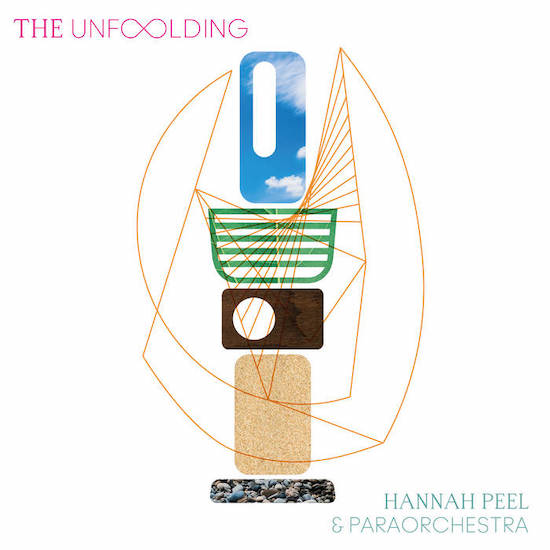An abiding memory from my childhood revolves around an unhealthy obsession I had with the 1940 Disney animated musical, Fantasia. As soon as the cloaked figures carrying torches of light to the strains of ‘Ave Maria’ completed their journey, leading us to a golden sunrise followed by the end credits, I would immediately rewind the VHS, watching it again from the start with unhindered enthusiasm. In the opening sequence, we see orchestra members settling into their positions, tuning their instruments. The conductor explains to us the three kinds of music that exist within the film. Firstly, there’s the kind that tells a “definitive story”, which is contrasted with that which is loose in plot but “paints a series of definite pictures”. Lastly, there’s “music that exists simply for its own sake”.
I often think about my early fascination with Fantasia. How completely devoted I was to its presence, how instantaneously it became ingrained in my mind. I wouldn’t experience such a curious dedication again until hearing Holly Herndon’s 2019 release, Proto. Whilst Herndon wasn’t necessarily seeking to present her interpretation of the inception of the wider world with that record, she instead used it as a clarion call for the role of AI in music. Where Fantasia, in part, explored the relationship between music and the evolution of humanity, Proto served to alter people’s perception of technology as something dehumanising. In doing so, Herndon gave listeners a startling body of work that – when you allow yourself to become fully immersed in – is sonically loose yet extremely effective in painting a fully realised world.
Music’s ability to convey a lasting image of the harmonious relationship between technology and organic orchestration is crucial in cultivating the story told across The Unfolding. A collaboration between Northern Irish composer Hannah Peel and the Paraorchestra, the progressive Bristol-based body that unites disabled and non-disabled musicians together. An important component to the Paraorchestra’s practice is melding analogue, digital, and assistive instruments. The results, as heard across these eight ambitious compositions, are completely spellbinding.
Across the LP, which passes by much quicker than its near-hour-long duration, there are several passages that rekindled the particular response to music that Fantasia and Proto ignited in me. The expansive opener, ‘The Universe Before Matter’ allows the listener to acclimatise to this sparse and unspoiled world. Initial strokes of instrumentation sound like the musicians tuning up and settling into this world themselves. Steadily, the song awakens with a bright luminosity, like the sun rising for the first time. At almost eleven minutes in length, the arrangement is unhurried and nimble for much of its duration. Here, Peel and the Paraorchestra establish a great depth of emotion emanating from the beautiful combination of the elegant instrumentation, the powerful presence of soprano Victoria Oruwari, and the ripples of optimism in the arpeggiated electronic motifs. The treatment is one that is effectively employed elsewhere on the track list, notably on ‘Passage’, ‘The Unfolding’, and ‘Perhaps It Made Us Happy For A Minute’.
There’s so much scope in these ambitious compositions. It cannot be denied that Peel and the Paraorchestra have succeeded in their world-building on The Unfolding. With regards to telling a story and presenting an accompanying visual, they do this best on ‘Wild Animal’ into ‘Passage’. This far more sinister couplet disrupts the tranquil environment established from the offset. Through the snarling synth interjections and the claustrophobic beat permeating the former, the listener instantly feels suffocated by the humidity and a relentless tension galloping throughout the arrangement. It genuinely feels as though you’re being hunted by a malicious beast. These darker and more electronic-focused compositions do well to incorporate some contrasting moods, creating tension within the album whilst maintaining a cohesive flow.
When Peel and the Paraorchestra splash colour on the compositions, they often do so with a similar mischievous spirit reminiscent of Phillip Glass’s spritely phrases. There’s the enveloping final movement of ‘The Unfolding’ teased by the interplay of the woodwind and electronic flourishes which return on ‘Part Cloud’. These exuberant textures offer much needed supporting roles in bringing some semblance of optimism into the album’s overall narrative. For the most part, there’s an overarching air of melancholy moving through The Unfolding’s track list. Typically, the mournful textures emanate from string parts amidst an unfussy arrangement anchored by a wistful note suspended from the synth. These moments have a tendency to reverberate in your mind long after stepping away from the record. It’s rather comforting to become immersed in The Unfolding’s melancholy. There’s a lasting beauty to these intimacies. So it’s distracting – disorientating, even – when ‘If After Weeks of Early Sun’ heralds a jarring tonal shift. Its uptempo pop sensibility drives through. Its intention feels completely out of sync with everything that precedes it. While it’s trying to lend an air of dynamism to the record, ‘We Are Part Mineral’ does this far more effectively through complimentary assistive instrument tones that align with the overall work.
Writing about The Unfolding for tQ, nature writer Robert MacFarlane (whose 2019 book Underland was a source of inspiration to Peel for this work) described feeling simultaneously “exhausted and exhilarated” when he finished listening to the LP. I can certainly understand MacFarlane’s position. There’s an infectious vibrancy captured across this collaboration, but it’s not one that insists upon the listener. If anything, this mostly feels like music that exists for its own sake.


